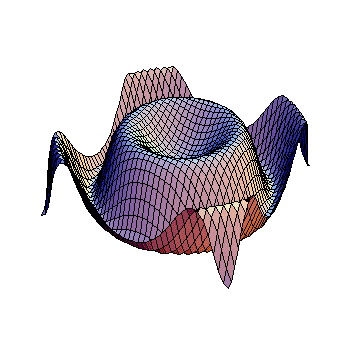What is the limit of (x^2)(e^x) as x goes to negative infinity?
2 Answers
Attempting to evaluate this limit by simply "plugging in"
However, if rewrite this as
We can apply L'Hôpital and go on our merry way
Not sure how one would go around doing it without L'Hôpital though.
Oct 8, 2015
Explanation:
Use L'Hôpital's Rule:
Since:
We can re-write this as:
by L'Hôpital's Rule:
apply L'Hôpital's Rule again:
We can see this by graphing
graph{x^2 e^x [-10, 10, -5, 5]}



